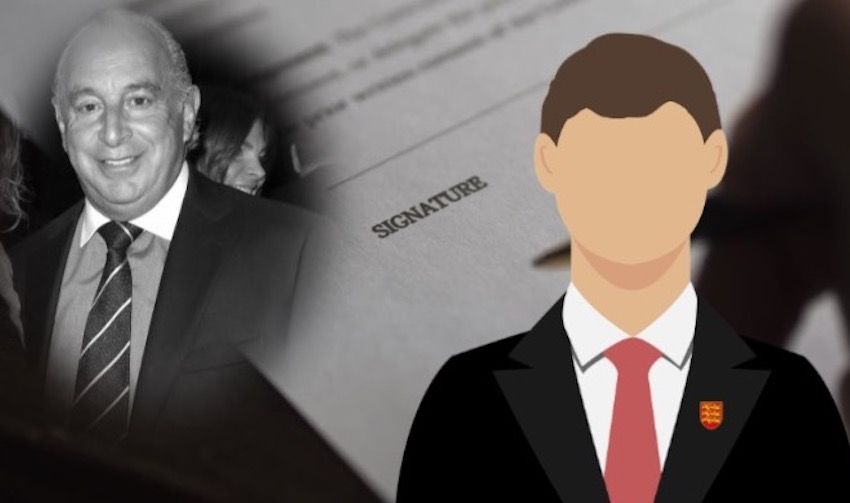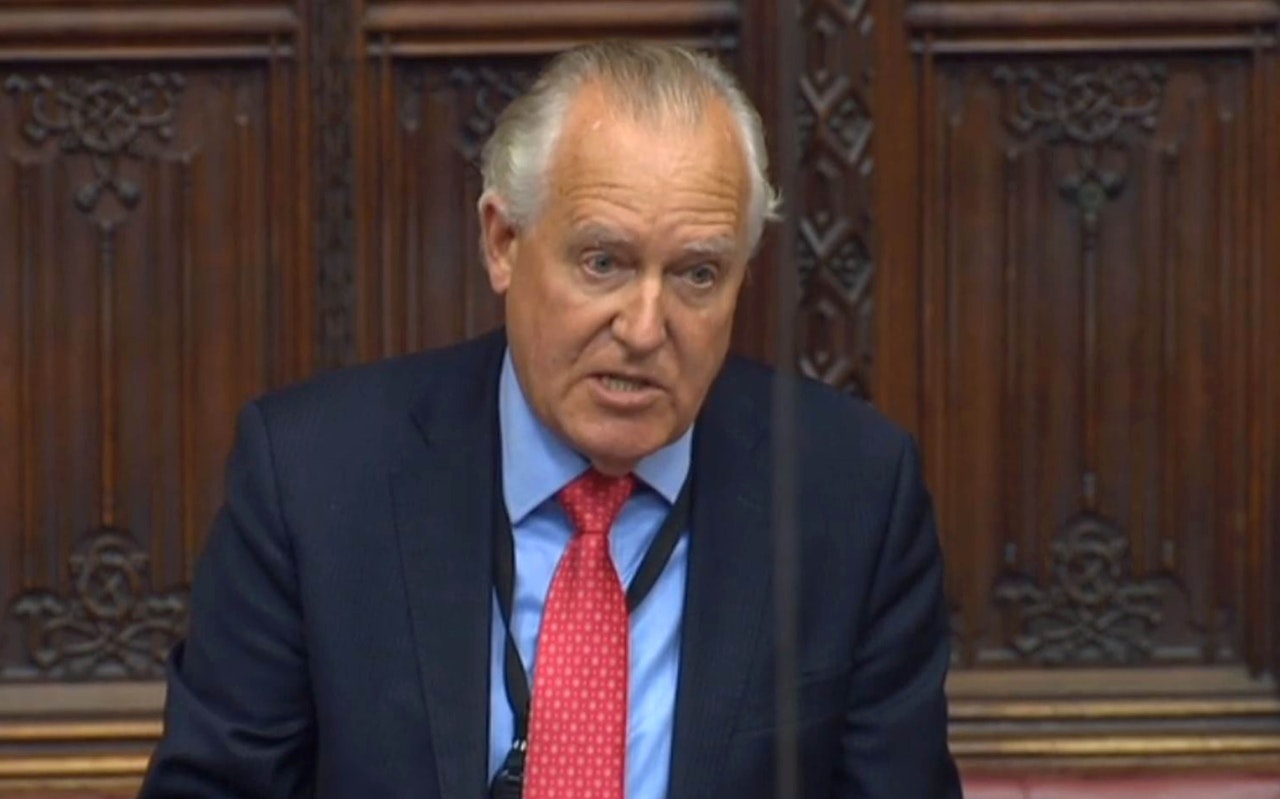

Depending on who you listen to, Lord Hain is either a hero fighting bravely against a legal affront on free speech or an enemy to justice… Should he have really outed Channel Islands billionaire Philip Green as the mogul facing #MeToo allegations?
The key issue is the centuries-old notion of 'parliamentary privilege' - a key protective measure Jersey politicians also enjoy.
In his latest Express column analysing issues from the outside of the island looking in, Publius Exon - a Jerseyman and lawyer at a top London firm - argues that this ancient right shouldn’t be a ‘Green’ light to ignore court rulings…
"Last week, Lord Hain revealed during a debate in the House of Lords that Sir Philip Green was the subject of an interim injunction. Mr Green, a prominent businessman with a number of connections to Jersey, was granted this interim injunction to prevent it being revealed that he had entered into agreements with women to prevent them revealing allegations of sexual harassment and racial abuse - so-called ‘non-disclosure agreements’ or ‘NDAs’.
While the media were unable to name him as a result, Lord Hain was able to avoid any punishment for breaching the court order because he was protected by parliamentary privilege.

Pictured: Philip Green, whose interim injunction crumbled after Lord Hain named him.
Parliamentary privilege allows a parliamentarian to avoid legal actions for things said during the proceedings of Parliament – a right also enjoyed by Jersey's States Assembly. It is an ancient right and its role is to allow parliamentarians to be able to do their job without worrying about the threat of legal challenge.
In this case, Lord Hain said that he revealed Sir Philip Green’s name because he viewed the interim injunction granted to Green as an example of a rich, powerful man abusing his wealth and power to silence women and, given that he is one of the few people in the UK entitled to legal immunity for breaking that injunction during the proceedings of Parliament, it was incumbent on him to reveal Mr Green’s name.
However, while Lord Hain may have been acting for noble reasons, the action he took was misguided. This was not a case where proceedings had finished and Mr Green was safe in the knowledge his name would not be revealed. Mr Green was granted an interim injunction, which means it was a temporary injunction in place until a full trial could be heard. Interim injunctions are often used in these types of cases as it is obvious that once someone has revealed confidential information, this cannot then be undone. It is perfectly possible that Mr Green would not have been granted an injunction at full trial and The Telegraph newspaper would have been able to reveal his name without any kind of legal impediment.

Pictured: Lord Hain as he revealed Philip Green was the businessman behind the #MeToo allegations last week. (PA)
Furthermore, Lord Hain’s actions show a certain degree of arrogance. He cannot have examined the evidence in the same way that the Court of Appeal as it is unlikely that most of the evidence was available to him. At least of two of the women who had signed the agreements not to reveal their allegations did not want Mr Green’s identity to be revealed as it could potentially lead others to guess they were one of the accusers, which they did not want.
It is only natural for us to want to know who is the subject of these secret orders, as it is a very human reaction to want to be let in on secrets, especially when they concern the rich and famous. However, Lord Hain’s actions directly went against an explicit order from the Court of Appeal. Why should anyone respect a court order if a member of the House of Lords and former Cabinet member doesn’t?
Some might argue that the Court of Appeal got it wrong in this case. This may be true. But it wasn't a final decision, as the full trial was still to come. I would have more sympathy for Lord Hain if, in circumstances where a full trial had found for Mr Green, he reviewed the judgment and decided that there was a vital public interest in revealing Mr Green’s name due to the workplace mistreatment of some women. However, by using parliamentary privilege to undermine a court order, Lord Hain showed contempt for the proper role of both Parliament and the courts."
The views expressed in this piece are those of the author, and not Bailiwick Express.
Comments
Comments on this story express the views of the commentator only, not Bailiwick Publishing. We are unable to guarantee the accuracy of any of those comments.